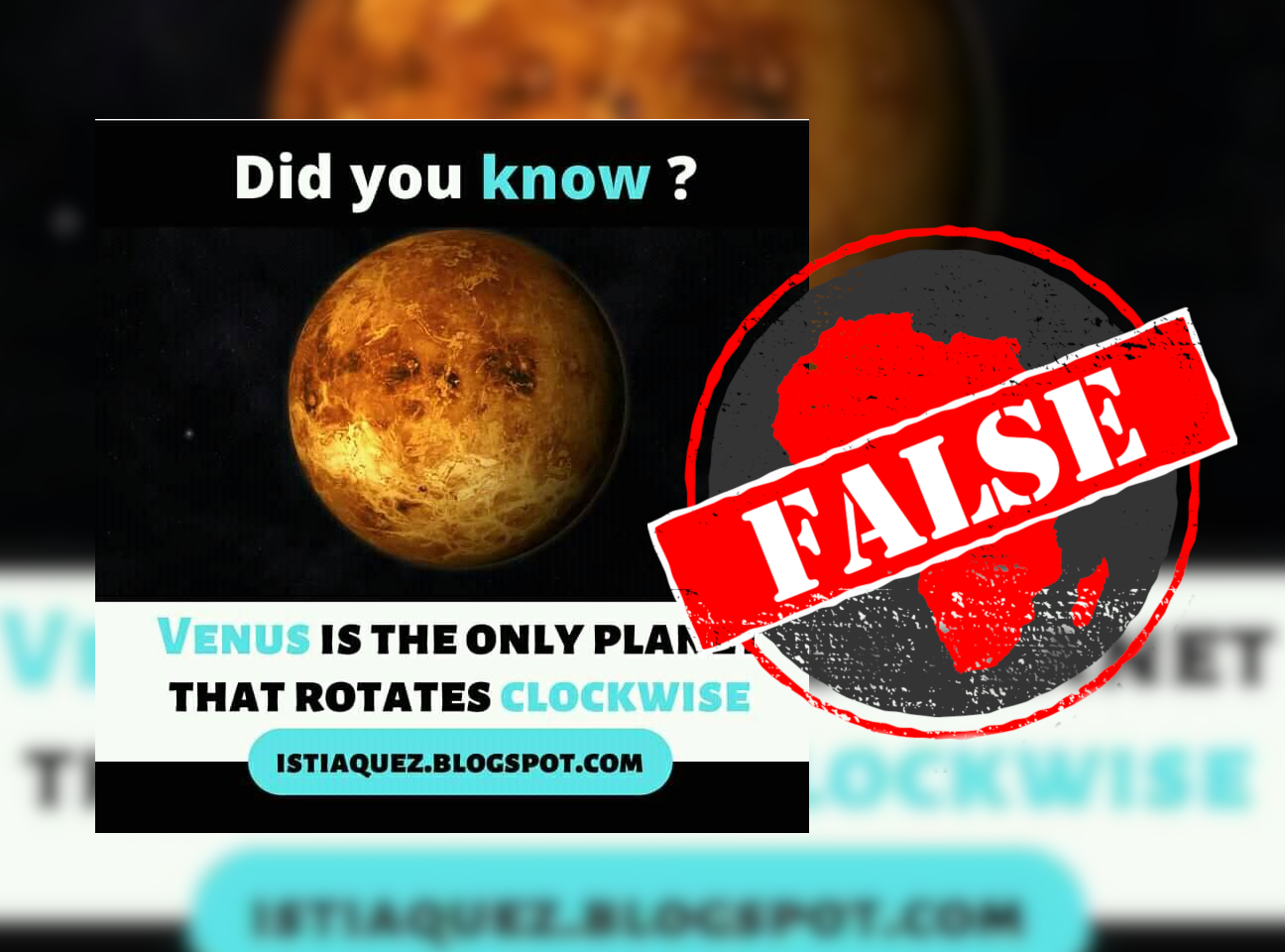“Venus is the only planet that rotates clockwise,” claims a graphic doing the rounds on Facebook in South Africa and viewed nearly 2,000 times.
Venus is Earth’s nearest planetary neighbour and the second planet from the sun.
Earth rotates on its axis in an counterclockwise direction, the opposite direction of the hands of a clock.
So is Venus the only planet rotating the other way? We investigated.

‘Venus spins backward’
Eight planets orbit Earth’s star, the sun: Mercury, Venus, Earth, Mars, Jupiter, Saturn, Uranus and Neptune.
Beyond Neptune, there are smaller worlds called dwarf planets which include what the US’s National Aeronautics and Space Administration, or Nasa, calls the “longtime favorite Pluto”.
Venus is often called the “twin” of Earth, but it has significant differences. Not only is its day longer than its year and it doesn’t experience seasons, but “Venus spins backward”, says Nasa.
Although Venus orbits the sun in an anticlockwise fashion like all the other planets in our solar system, it rotates clockwise about its axis. This unusual axis rotation “is due to being upside down”, according to the Royal Museums Greenwich in the UK.
But Venus isn’t the only planet that rotates differently to its solar system neighbours.
Uranus and dwarf planet Pluto also rotate clockwise
There are two planets that “spin on their axes from east to west”, according to the New York Times – Venus and Uranus.
Uranus is the seventh planet orbiting the sun.
“Like Venus, Uranus rotates in the opposite direction as most other planets. And unlike any other planet, Uranus rotates on its side,” says Nasa.
Dwarf planet Pluto also rotates clockwise – or “retrograde”, from east to west – like Venus and Uranus. Pluto was once considered our solar system's ninth planet.
While it’s true Venus spins clockwise, in the opposite direction to Earth, the same is true for Uranus – and dwarf planet Pluto.
Republish our content for free
For publishers: what to do if your post is rated false
A fact-checker has rated your Facebook or Instagram post as “false”, “altered”, “partly false” or “missing context”. This could have serious consequences. What do you do?
Click on our guide for the steps you should follow.
Publishers guideAfrica Check teams up with Facebook
Africa Check is a partner in Meta's third-party fact-checking programme to help stop the spread of false information on social media.
The content we rate as “false” will be downgraded on Facebook and Instagram. This means fewer people will see it.
You can also help identify false information on Facebook. This guide explains how.


Add new comment